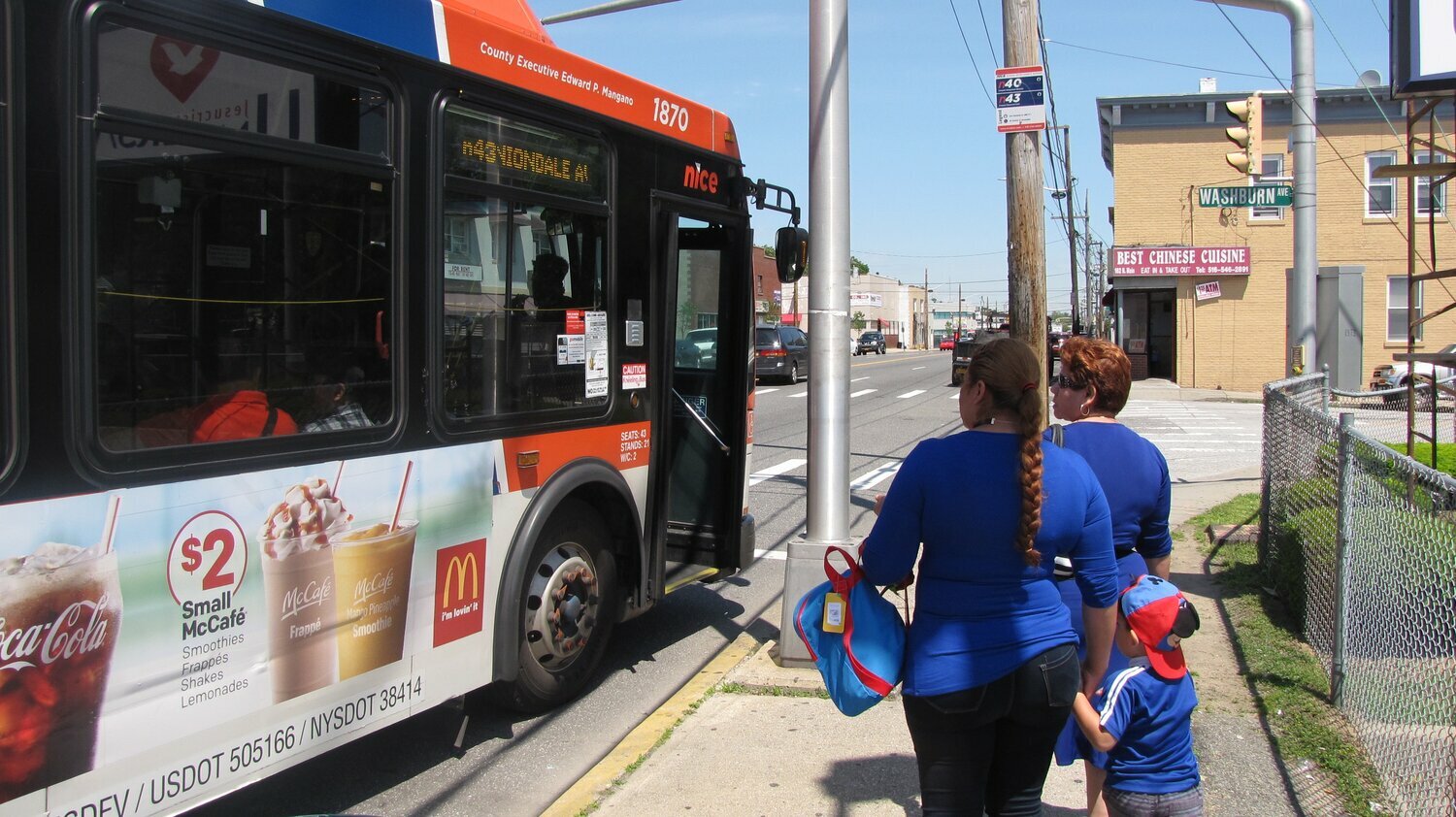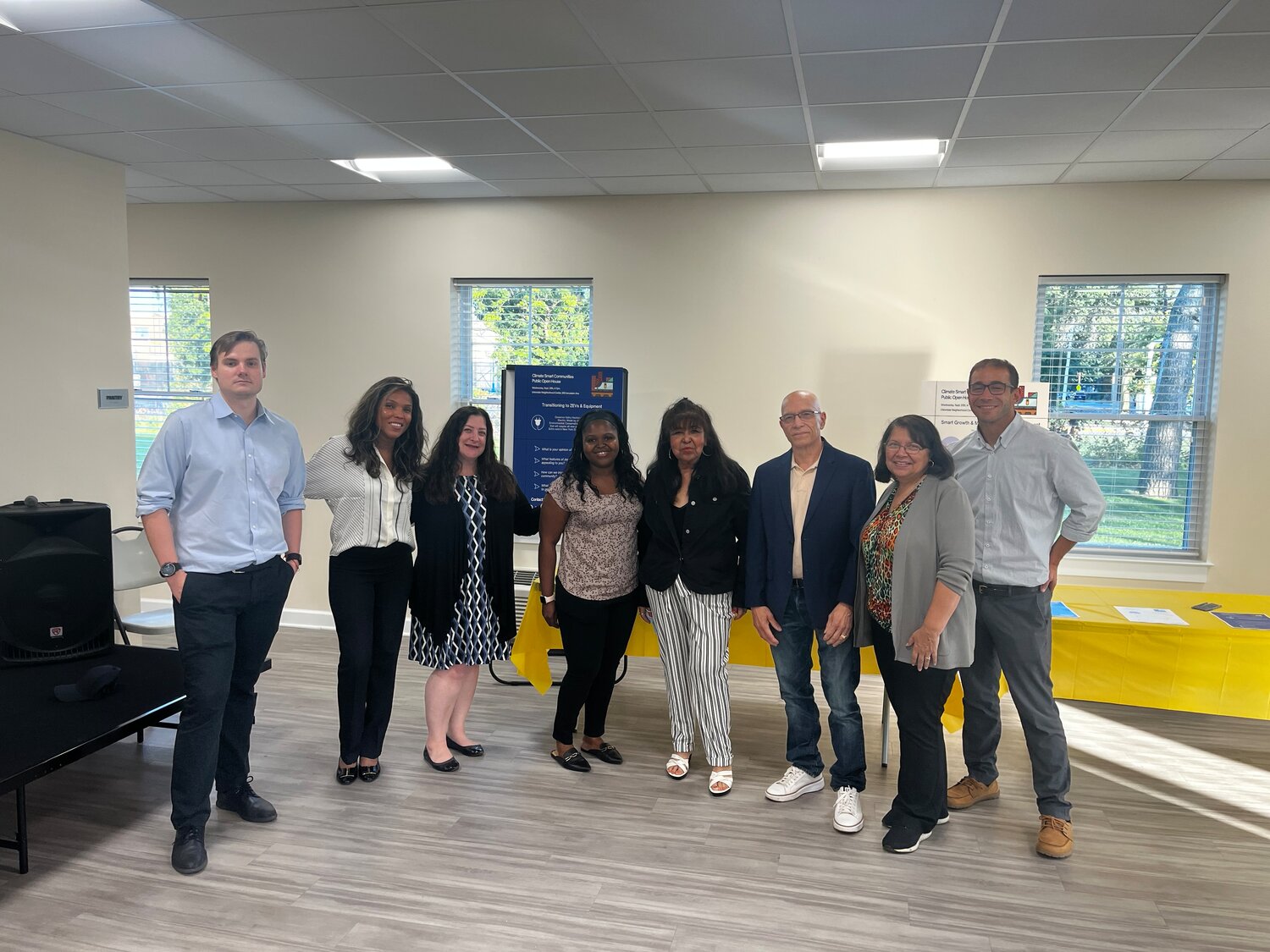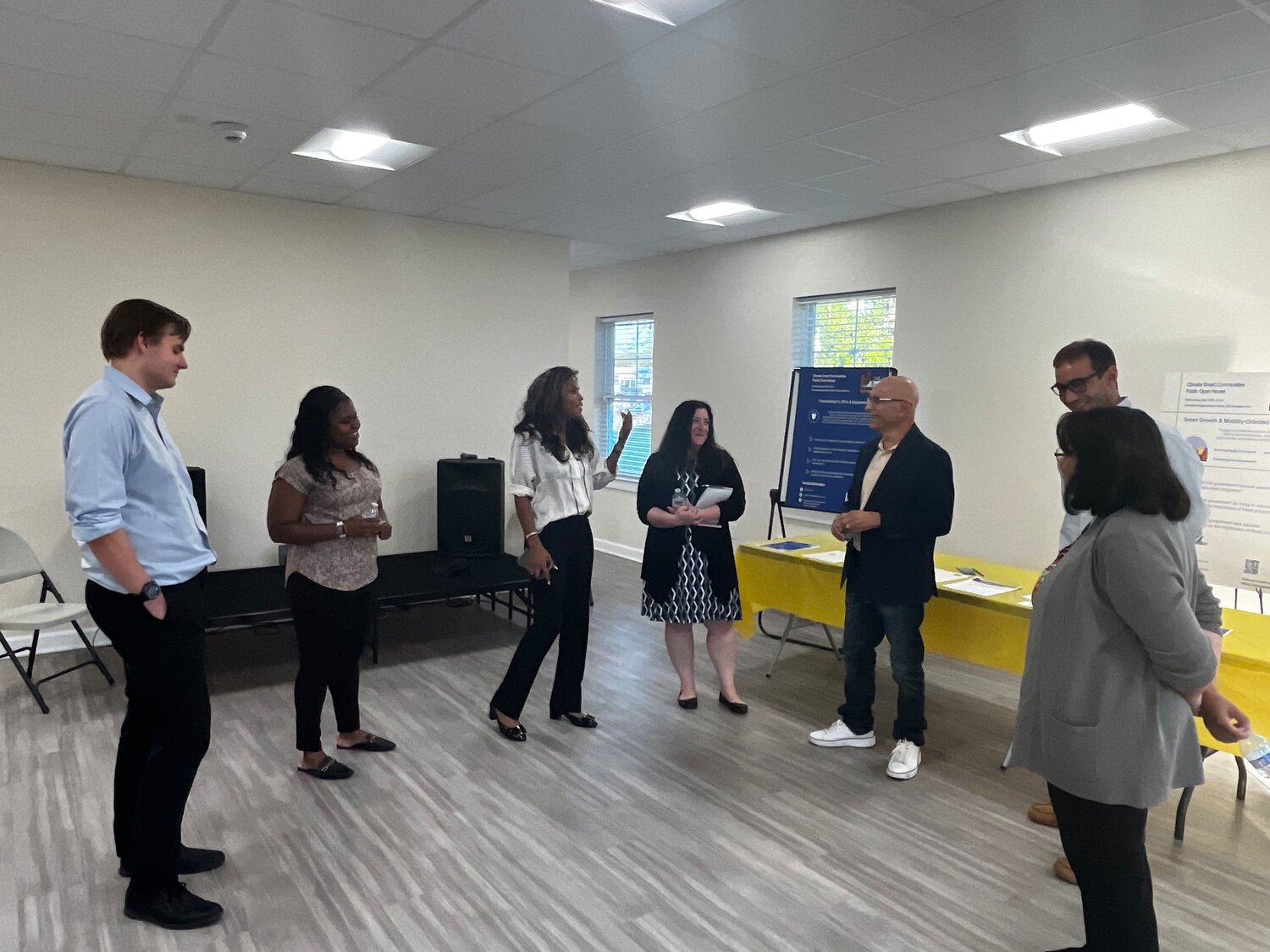State pledges to invest in Uniondale's public infrastructure and transportation
Albany promises equitable transportation funding as part of the Climate Leadership and Community Protection Act
Leaders in Albany are pledging to make equitable investments for infrastructure and public transportation upgrades in Uniondale, a move that could assist the disadvantaged population throughout the struggling city.
The state’s promised investment comes as a result of the Cap and Invest Program, an integral component of the state’s Climate Leadership and Community Protection Act.
The act, signed into law in July 2019, addresses issues associated with climate change, and requires a state-wide reduction of greenhouse gas emissions 40 percent by 2030 and 85 percent by 2050 — the “cap” aspect of the plan. But the “invest” facet of the legislation may be the component to matter most to Uniondale residents. The state has committed to allocating a minimum of 35 percent of the act’s funding to communities that have been identified as “disadvantaged,” and Uniondale made the list.
“As we work to drive down polluting emissions across the board, we must make sure that those who have already suffered from environmental injustice no longer bear an unfair share of the burden,” Gov. Kathy Hochul said in January. “Our ambitious Cap and Invest Program sets a cap on greenhouse gas emissions and shares the revenues with New Yorkers from disadvantaged communities to help cover utility bills, transportation costs and decarbonization efforts. Through our innovative efforts, we will create a cleaner, greener future while helping New Yorkers with the costs of the transition.”
The measures the state plans to take include enticing drivers to make the shift to electric vehicles by offering incentives, grants, free technical assistance and rebates, as well as promising an expansion of “easily accessible charging infrastructure,” according to the state government’s website. The plan also includes reducing vehicle traffic by increasing access to public transportation, public bikes and bike lanes, and sidewalks.
“Uniondale has often been forgotten, and I think they feel like they’ve been forgotten,” says Sarah Oral, the Long Island coordinator for the state Climate Smart Communities program, or CSC, which helps local governments take action to reduce greenhouse gas emissions and adapt to a changing climate, according to the state website.
Long Island CSC wants Uniondale to understand that this process is not about dictating the terms of Uniondale’s involvement — instead, Oral explained, it’s about empowering the community to have a voice in shaping its future. Long Island CSC is hosting community meetings in the hope of gathering valuable feedback that the state can use to fund more sustainable and “travel-efficient” neighborhoods based on their unique needs.
“As a bronze-certified Climate Smart Community, the Town of Hempstead is no stranger to working toward a greener future,” Town Supervisor Don Clavin told the Herald. “Gathering and analyzing data from the Uniondale community will prove beneficial to strengthening the public transportation infrastructure on Long Island as a whole.”
As of right now, there is no set funding allocated for Uniondale. That will be determined by the feedback and information gathered at the meetings.
“We’ve heard from people here — they want better sidewalks, they want places for their kids to ride their bikes safely, they need better north-south connectivity, better transportation, benches and awnings at bus stops, more bus service and reliability,” Oral said, “and we’ve also heard they need the bus to go to more of the important locations that are in this community, because it often times doesn’t.”
But the top transportation challenges in Uniondale, as reflected in the feedback that CSC has gathered thus far, are what Oral calls the “last-mile issue,” and the stigma surrounding those in Nassau who use the bus and the need to break the stereotypes surrounding public transportation on Long Island.
“You could take the bus or the train somewhere, but how do you get from the bus or the train to your final destination if it’s a mile or more away?” she said. “Is that really convenient for a commuter?”
The state is still gathering feedback on Uniondale’s transportation needs. To contribute your opinions, go to tinyurl.com/2pavz7px by Nov. 30.











